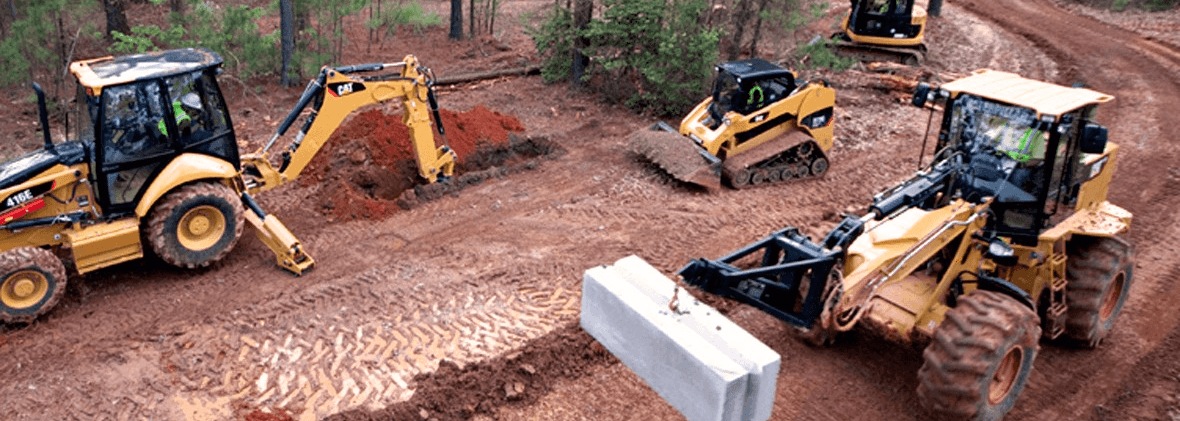
How to Measure Soil Compaction
If your construction projects involve installing concrete structures in soil, you're likely familiar with the concept of soil compaction. Insufficient compaction can allow a concrete slab, foundation or pavement to fail.
To attain compaction, builders must apply pressure to the ground or surface, typically by using equipment like compactors, rollers or rammers. Testing and measuring the compaction is necessary to verify that the soil will support the specific construction application.
The Importance of Testing Soil Compaction
Conducting comprehensive soil compaction tests is essential for several reasons. Measuring the level of compaction and density allows workers to determine the soil's strength and whether additional compaction steps — such as another pass with the equipment — are necessary. If the tests provide acceptable results, project managers know they can start the next construction phase safely.
A soil compaction test can also prevent unexpected trouble down the road. It helps to alleviate concerns regarding issues such as foundation cracking, roadways sagging or developing potholes and a possible partial or complete building collapse.
How Do You Measure Soil Compaction?
Soil compaction testing entails determining the dry density weight in pounds per cubic foot in accordance with the American Society for Testing and Materials (ASTM) standards. Three of the most common ASTM-sanctioned processes are the sand cone, nuclear density gauge and Proctor compaction test methods.
Sand Cone Method
This process involves using a volumeter apparatus to measure the in-place moisture and density of the soil. The technician or worker begins by excavating a small hole and funneling the contents of a jar filled with a predetermined weight of sand into the excavation. The excavated soil and any remaining sand are then sent to a lab for testing.
Accuracy and reliability are the primary benefits of this testing method. It's also highly cost-effective, enabling it to fit frugal construction budgets. A potential drawback is that the testing process takes longer than other methods, which could be detrimental when facing a tight project deadline. Sand cone testing is also limited to specific soil types.
Nuclear Gauge Method
This testing method uses a nuclear gauge, a piece of soil density testing equipment that emits a small number of radioactive particles into the soil via two isotopes roughly the size of the head of a pin. A specially designed detector receives the transmission. The process utilizes two modes — a direct transmission, where the technician places a rod into a pre-drilled hole in the ground, and a backscatter mode, where the rod remains in the machine.
One setting detects the amount of hydrogen content in the soil, while the other measures the wet density level. With the data obtained from both of these readings, the nuclear gauge can calculate the soil's in-place dry density. Comparing this figure to the maximum dry density determined during lab testing yields a percentage. A measurement falling between 90% and 95% of the stated maximum dry density is typically acceptable.
The nuclear gauge method is advantageous for its speed and convenience — the process only takes a few minutes, and the machine performs all the calculations, making it ideal for larger testing projects. It also works well with multiple soil types. On the downside, the nuclear gauge is expensive and requires user expertise and compliance with various regulatory standards.
Proctor Compaction Method
The Proctor method is a laboratory test that determines the optimal moisture content at which soil will become the most dense and attain maximum dry density. The testing process involves packing the soil at a known density into a cylindrical mold at a specific number of equal layers. Each layer receives multiple blows from a hammer to determine the dry density.
This test provides a better understanding of the compaction characteristics of different soil types when altering the moisture content under controlled conditions. It can help deliver the optimal moisture content when compacting soils for road bases, embankments and foundation pads while ensuring stability in all load-bearing projects.
Compact The Cat® Rental Store for Your Compaction Equipment Needs
No matter what soil compaction challenges your company faces, The Cat® Rental store has the right equipment for the job. Our extensive inventory includes compactors, rollers and rammers from Caterpillar and other leading manufacturers. Trust our experts to help you make an educated equipment selection with high-quality, well-maintained machinery in peak condition. Our rates are competitive, and you'll receive excellent service throughout the process.
Check out our compaction machine rental fleet today. Call us at 1-800-RENT-CAT or contact us online to receive a quick quote.
